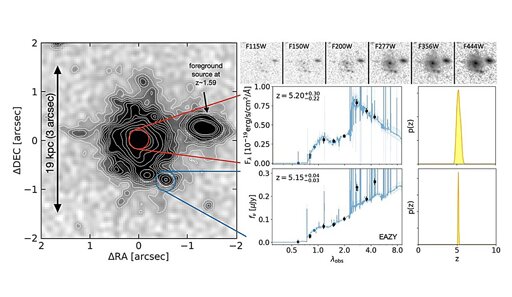Putting on my sci-fi hat; a distant galaxy that is likely a billion years older than ours, very likely has had enough time to develop life somewhere in the trillions of stars that formed within it, by the time the photons of that galaxy finally reached us and hit that very specific telescope sensor at that very specific moment the JWT engineers were observing.
Using the James Webb Space Telescope (JWST), an international team of astronomers has detected a new grand-design spiral galaxy as part of the PANORAMIC survey. The newfound galaxy, named Zhúlóng, is extremely massive and appears to be the most distant spiral galaxy identified so far. The finding was detailed in a paper published December 17 on the pre-print server arXiv.
Grand-design spiral galaxies are characterized by their prominent, well-defined arms, which circle outwards from a clear core. It is assumed that the arms in such galaxies are actually overdense regions of the disk which trigger star formation as incoming material is compressed in that region.




